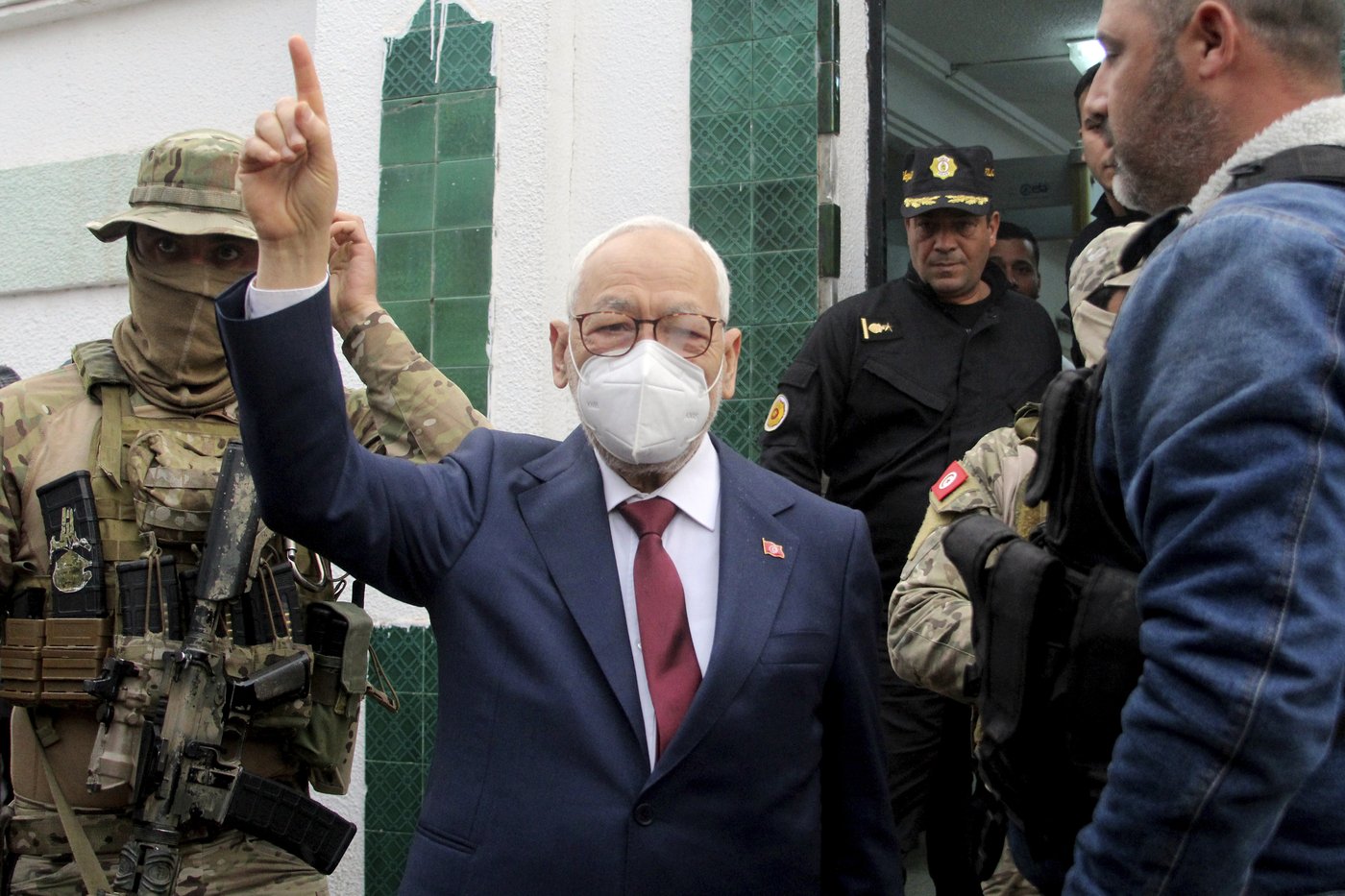Elevate your local knowledge
Sign up for the iNFOnews newsletter today!

TUNIS, Tunisia (AP) — Tunisians took to the streets Friday to protest President Kais Saied, marking four years since he made moves to consolidate his one-man rule in a country once known as the birthplace of the Arab Spring pro-democracy uprisings.
On July 25, 2021, Saied suspended parliament, dismissed his prime minister and invoked a state of emergency to begin ruling by decree. Though some cheered his efforts, critics called the moves a coup and said the events marked the beginning of Tunisia’s descent toward authoritarianism.
Crowds on Friday marched through the capital chanting “no fear, no terror, power to the people,” carrying portraits of political prisoners and a cage that organizers said represented the state of political life in Tunisia.
The country’s most prominent opposition figures are behind bars, including Rached Ghannouchi, the head of the Islamist Ennahda party, and Abir Moussi, leader of the right-wing Free Destourian Party.
Women led much of the chanting, demanding the release of imprisoned opposition figures from across the political spectrum, including Moussi and attorney Sonia Dahmani.
The two are among those who have been imprisoned since Saied’s power grab as Tunisia’s once-vibrant civil society has gradually been suppressed. Activists, journalists, dissidents and opposition figures have faced jail time, including many who have been charged with undermining state security.
July 25 also marks the anniversary of Tunisia’s declaration as a republic in 1957. It later became the rallying cry of the pro-Saied “July 25 Movement,” which pushed for a crackdown on the country’s largely unpopular political class.
Samir Dilou, a former government minister and member of Ennahda, said Saied had forever changed the day’s meaning. “July 25 used to mark the Republic’s founding. Now, it marks its dismantling. Absolute power is absolute corruption,” he said.
Tunisia’s political turmoil has unfolded against a backdrop of economic hardship and deepening public disillusionment.
Amnesty International in a report last June wrote that the country’s authorities have intensified their crackdown on opposition voices and used vague legal justifications to target marginalized groups.

Want to share your thoughts, add context, or connect with others in your community?
You must be logged in to post a comment.